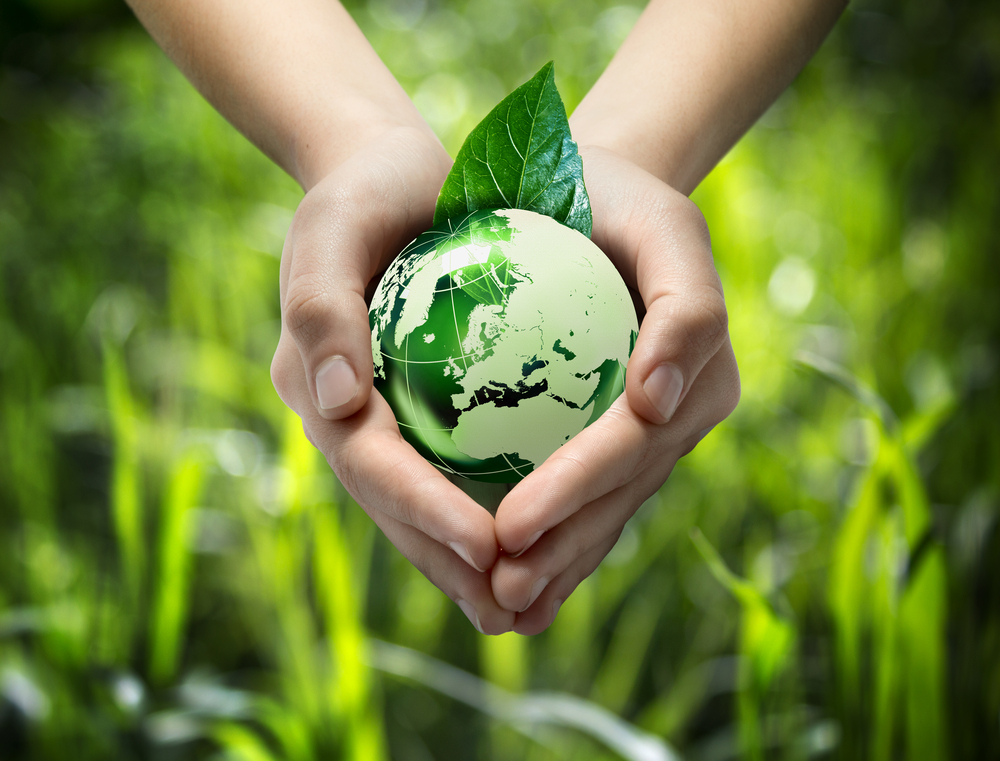Improve your sustainability practices now
Published on Tuesday, 29 May 2018
Last updated on Friday, 24 January 2020

Early childhood education and care settings are the ideal forum for teaching children about the importance and urgency of adopting more environmentally sustainable practices. Early childhood educators have a fantastic opportunity to affect real change by working with children to help them make better environmental decisions and by giving them the skills and agency to see that they can positively impact the world around them.
Sustainability expert Lucy Sharman developed training for early childhood services on improving sustainability practices and building environmentally sound policies into the everyday operation of child care centres.
Lucy's overarching message for providers is the more you include children in the planning and execution of environmentally sustainable policies the more effective and lasting the impact will be.
In addition, Quality Standard 3.3 of the National Quality Framework requires early childhood providers to "take an active role in caring for the environment and contributing to a sustainable future" in two ways:
- by ensuring sustainable practices are embedded in service operations, and
- supporting children to become environmentally responsible and show respect for the environment
Lucy offers these tips for providers wanting to quickly and easily adopt a more environmentally friendly approach to their operation:
- Give children agency, the ability to recognise and understand how they can positively impact their environment.
- Although environmental challenges may seem big and overwhelming children should be taught that small and simple changes they make, can have a big impact.
- Involve children in collecting information about how the centre uses water and energy and how much waste is being generated.
- A good place to start is anywhere there is water: bathrooms, kitchens etc. Use food colouring in the toilet cistern to check for water leaks, put a jug under a dripping tap for five minutes to measure the waste. Simple experiments like these provide a graphic demonstration of how important it is to be vigilant about conserving water.
- Consider going chemical free to protect our waterways. Vinegar and bicarbonate soda are great natural cleaners and reduce toxic run off.
- Take a close look at how well you are managing waste and whether you can do a better job of sorting and recycling objects, rather than sending them to landfill.
- Composting is an effective and productive way to reduce the food waste going into general waste bins and is a wonderful way to boost the fertility of soil in garden beds and pots.
- Look at your purchasing practices and work through the following questions and steps when considering buying something:
- Do I need it?
- Can I get used or upcycled products instead?
- How long will it last? Does it have recycled content?
- When I finish with it, can I give it a second life – can it be reused or repurposed?
- If it can't be reused, can it be recycled?
- Upcycling is the art of taking something that is a waste product and turning it into something useful or new. Building upcycling projects into your weekly program is a great way to teach children about the hidden value in things. Organisations such as Reverse Garbage run workshops specifically supporting childcare centres to learn about sustainability, upcycling and creative loose parts play.
- Consider your centre's energy use and make some quick financial gains by: changing your light globes to LEDs, switching appliances to standby when possible, using the off switch and encouraging children to do the same, replacing energy hungry appliances with energy efficient models and keeping track of your power bill to monitor how changes impact the bottom line.
- Seek buy-in among parents and carers by keeping them appraised of the steps you are taking to become more energy efficient. Share strategies parents can employ at home and encourage children to apply the lessons they learn at child care in their own houses.
To learn more about workshops provided by Reverse Garbage for child care centres in NSW, email them at info@reversegarbage.org.au or call 02 9569 3132.
Related Articles

Reduce your food waste
FeedAustralia's online meal planning resource assists early childhood education and care providers design healthier menus.

Going green improving sustainability practices in your centre
Boosting sustainbility practices in your service to lessen the effects of climate change and ensure future generations can continue to thrive.
